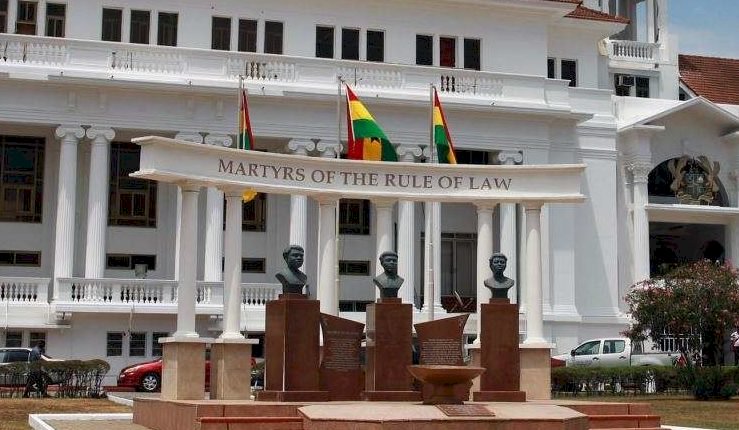NDC vs EC: Supreme Court Fixes June 23 for Judgement on EC’s Rejection of Old Voters' ID

The Supreme Court has scheduled June 23, 2020 to deliver its judgment on whether or not to uphold the Electoral Commission’s (EC) decision to refuse existing voters’ card as a form of identification for the upcoming mass registration exercise.
A seven-member panel of the court, presided over by the Chief Justice, fixed the date Thursday morning during a hearing of a suit by the opposition National Democratic Congress (NDC) challenging the EC’s decision to exclude an existing voters’ ID as a prerequisite for the registration exercise.
READ ALSO:
NDC Won’t Accept Results from “Flawed” Election Polls – Mahama
Background
The NDC had earlier, in a legal suit against the EC, invoked the original jurisdiction of the Supreme Court to interpret the constitution with a case that it was unconstitutional for the EC to reject an existing voters ID as a prerequisite for the upcoming voter registration exercise.
The minority believe the Constitutional Instrument (C.I) to be used by the EC in compiling the new register will disenfranchise many Ghanaians who do not have a passport or Ghana Card.
The NDC also argued in its suit that per Article 45 of the 1992 Constitution the EC lacks the power to go ahead with its plans because it can only “compile a register of voters only once, and thereafter revise it periodically, as may be determined by law”.
The Supreme Court hence ordered the EC to provide the legal basis why it has decided to refuse to accept the existing voters’ identification card as a form of identification in the upcoming mass voters registration exercise.
The EC in response said the old Constitutional Instrument (C.I. 12) which was used in compiling the existing voters’ register did not require any require any proof of qualification to register as a voter.
This the EC said meant that, anyone who registered under C.I. 12 cannot be said to have satisfied the constitutional test of proving qualification since no proof was required even though the criteria for qualification under Article 12 was set out therein.





































